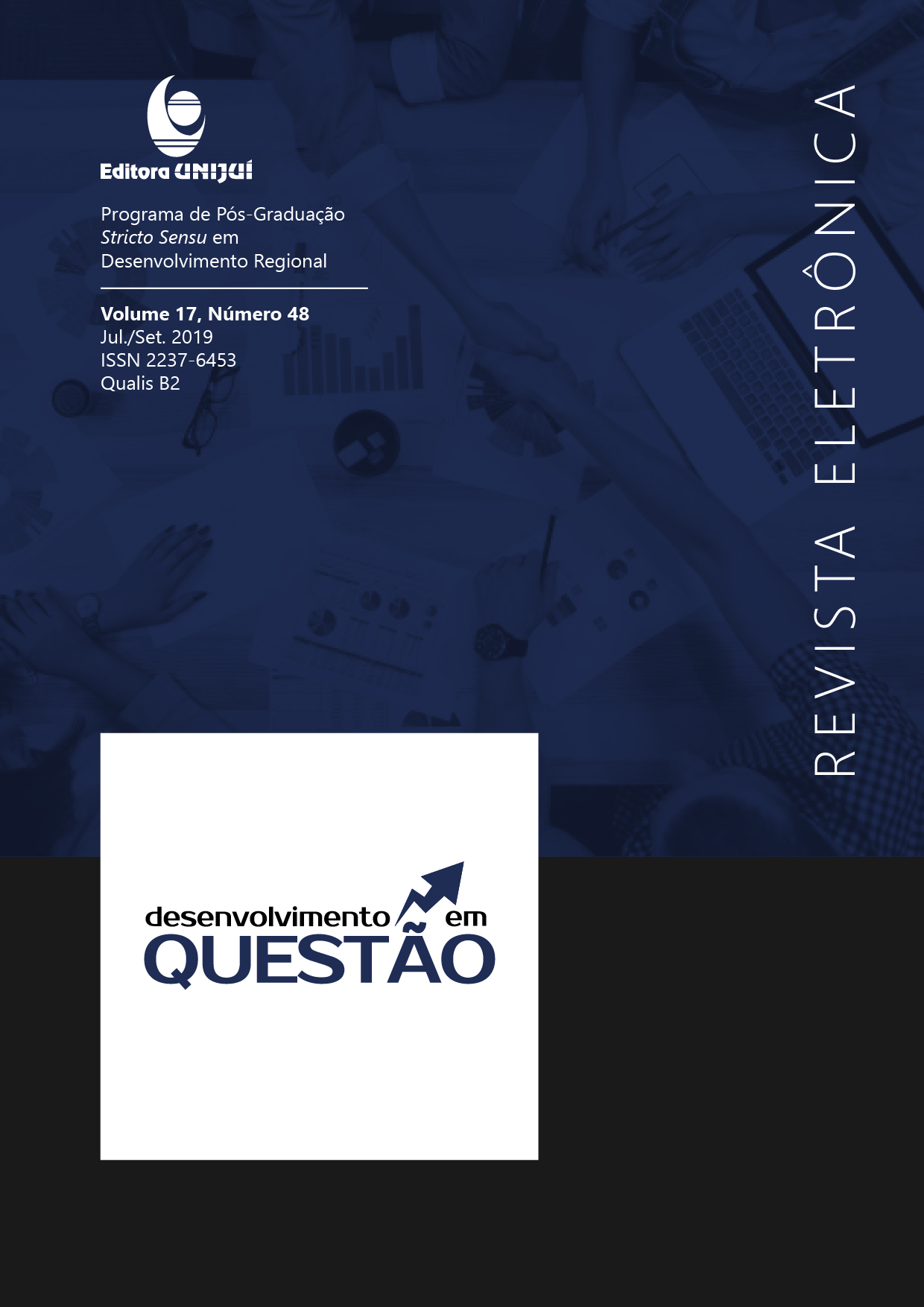Universidade Empreendedora: proposição de modelo teórico
DOI :
https://doi.org/10.21527/2237-6453.2019.48.121-138Mots-clés :
Universidade empreendedora, Dimensões de Universidade Empreendedora, Empreendedorismo no meio acadêmicoRésumé
O objetivo deste artigo foi propor um conjunto de elementos que caracterizam as universidades empreendedoras. Foi revisitada a literatura, desde os artigos seminais até 2017 e, partindo de 289 estudos pesquisados, foram selecionados e analisados 13 artigos de forma qualitativa para a proposição do modelo teórico, os quais possibilitaram a compreensão das características das universidades empreendedoras. Os elementos teóricos foram agrupados e relacionados em dimensões que, após serem refinados, embasaram a proposição do modelo teórico para análise empírica das universidades empreendedoras. Esta análise possibilitou a compreensão das características das universidades empreendedoras que se transformam para atender às demandas da sociedade. Espera-se que os resultados apresentados e discutidos possam auxiliar as universidades na ampliação de seu papel social, juntamente com seu ecossistema empreendedor, e na adoção de ações voltadas para o desenvolvimento local, regional, nacional e internacional, integrando ensino, pesquisa, extensão e inovação. Como contribuição acadêmica, este estudo relaciona as características das universidades empreendedoras e integra essas características em dimensões para compreensão das diferenças entre as universidades tradicionais e as empreendedoras e, pode servir de ponto de partida para outros estudos empíricos. Destaca-se a necessidade de pesquisas empíricas futuras para validar os elementos identificados e/ou agregar outros elementos que possam compor uma universidade empreendedora.
Téléchargements
Publié-e
Comment citer
Numéro
Rubrique
Licence
Ao publicar na Revista Desenvolvimento em Questão, os autores concordam com os seguintes termos:
Os trabalhos seguem a licença Creative Commons Atribuição 4.0 Internacional (CC BY 4.0), que permite:
Compartilhar — copiar e redistribuir o material em qualquer meio ou formato;
Adaptar — remixar, transformar e criar a partir do material para qualquer fim, inclusive comercial.
Essas permissões são irrevogáveis, desde que respeitados os seguintes termos:
Atribuição — Atribuição — os autores devem ser devidamente creditados, com link para a licença e indicação de eventuais alterações realizadas.
Sem restrições adicionais — não podem ser aplicadas condições legais ou tecnológicas que restrinjam o uso permitido pela licença.
Avisos:
A licença não se aplica a elementos em domínio público ou cobertos por exceções legais.
A licença não garante todos os direitos necessários para usos específicos (ex.: direitos de imagem, privacidade ou morais).
A revista não se responsabiliza pelas opiniões expressas nos artigos, que são de exclusiva responsabilidade dos autores. O Editor, com o apoio do Comitê Editorial, reserva-se o direito de sugerir ou solicitar modificações quando necessário.
Somente serão aceitos artigos científicos originais, com resultados de pesquisas de interesse que não tenham sido publicados nem submetidos simultaneamente a outro periódico com o mesmo objetivo.
A menção a marcas comerciais ou produtos específicos destina-se apenas à identificação, sem qualquer vínculo promocional por parte dos autores ou da revista.
Contrato de Licença (para artigos publicados a partir de 2025): Os autores mantêm os direitos autorais sobre seu artigo, e concedem a Revista Desenvolvimento em Questão o direito de primeira publicação.











